I’ve read books in English, French, and Arabic. Both fiction and non-fiction.
Mostly, I’ll post here non-fiction English books. At least, the ones that I can recommend and might be relevant to most of you.
Also, I’ll skip the books that I read but don’t remember much of them. I spent a decade reading without taking notes. Please don’t do like me. It’s such a waste.
This section is only meant to spark your interest in books. So I’ll only write my impressions and three notes from the books. For more details, summaries and reviews, you can find them on Amazon or any other source.
For a faster research, you can click on any tag below to find the books of your interests.
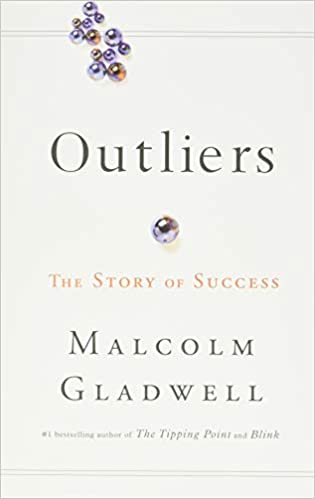
Outliers
The Story of Success
Malcolm Gladwell
I read The Tipping Point after reading Outliers. From a writing perspective, Outliers is far better. It is fluid with a dose of suspense. You don't see from the beginning how the different chapters are connected to the main idea, which keeps you captivated. For the rest, based on the story of many successful people, Gladwell shows what it takes to be successful. Also, you'll understand why some ingredients of success are not replicable.
Three notes from the book:
1- Achievement is talent plus preparation. The problem with this view is that the closer psychologists look at the careers of the gifted, the smaller the role innate talent seems to play and the bigger the role preparation seems to play.
2- Those three things - autonomy, complexity, and a connection between effort and reward - are, most people will agree, the three qualities that work has to have if it is to be satisfying.
3- It is those who are successful, in other words, who are most likely to be given the kinds of special opportunities that lead to further success. It’s the rich who get the biggest tax breaks. It’s the best students who get the best teaching and most attention. And it’s the biggest nine- and ten-year-olds who get the most coaching and practice. Success is the result of what sociologists like to call “accumulative advantage.
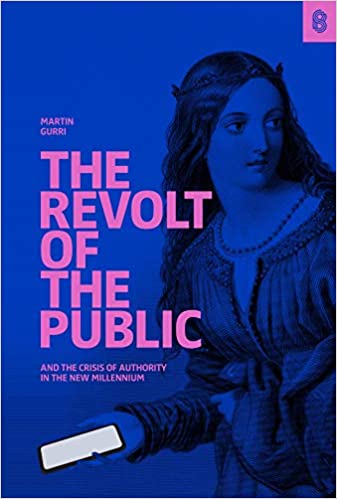
The Revolt of The Public
and the Crisis of Authority in the New Millennium
Martin Gurri
This is an essential book to understand major events of the last two decades. Events like the Arab Spring, the election of Trump, and Brexit are all connected. Similar events are happening all around the world. They describe a new reality. The access of the public to information changed the relationship to power. You can have a glimpse of the book from my article "(Almost) Everything You Need to Know About Media".
Three notes from the book:
1- The docile mass audience, so easily persuaded by advertisers and politicians, had been a monopolist's fantasy which disintegrated at first contact with alternatives.
2- Information had effects. And the first effect I perceived related to the sources: as the amount of information available to the public increased, the authoritativeness of any source decreased.
3- The [dictator] dilemma works this way. For security reasons, dictators must control and restrict communications to a minimum. To make their rule legitimate, however, they need prosperity, which can only be attained by the open exchange of information. Choose.
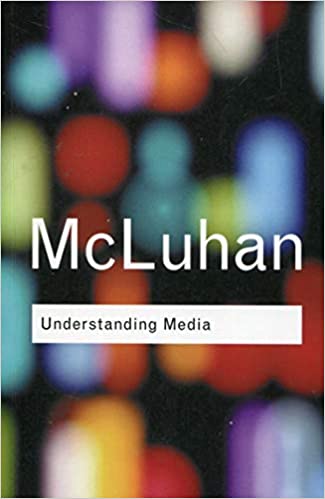
Understanding Media
The Extensions of Man
Marshall McLuhan
I must warn you that McLuhan has his own writing style. Some parts are difficult to read. If you want a quick intro to this book, you can read the first part of my article "(Almost) Everything You Need to Know About Media". McLuhan is famous for expressions like "global village" or "the medium is the message". He analyzed our media from the beginning of time. When you consider such a large historical period, you can derive important insights into how much our media transformed us.
Three notes from the book:
1- Once we have surrendered our senses and nervous systems to the private manipulation of those who would try to benefit from taking a lease on our eyes and ears and nerves, we don't really have any rights left.
2- Language does for intelligence what the wheel does for the feet and the body. It enables them to move from thing to thing with greater ease and speed and ever less involvement.
3- The effects of technology do not occur at the level of opinions or concepts, but alter sense ratios or patterns of perception steadily and without any resistance.
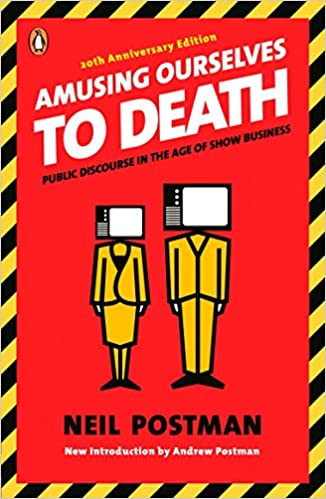
Amusing Ourselves to Death
Public Discourse in the Age of Show Business
Neil Postman
This book inspired my article "How Does the Media Change Our Culture, Worldview, and Brain?". Even if it was written in the eighties, it's still relevant today. Neil Postman reveals the embedded biases in our technologies and how they affect our culture. You'll understand why entertainment has such a big place in our societies.
Three notes from the book:
1- Orwell feared that the truth would be concealed from us. Huxley feared the truth would be drowned in a sea of irrelevance. Orwell feared we would become a captive culture. Huxley feared we would become a trivial culture… In 1984, people are controlled by inflicting pain. In Brave New World, they are controlled by inflicting pleasure. In short, Orwell feared that what we hate will ruin us. Huxley feared that we love will ruin us.
2- A major new media changes the structure of the discourse; it does so by encouraging certain uses of the intellect, by favoring certain definitions of intelligence and wisdom, and by demanding a certain kind of content–in a phrase, by creating new forms of truth-telling.
3- People will come to adore the technologies that undo their capacities to think.
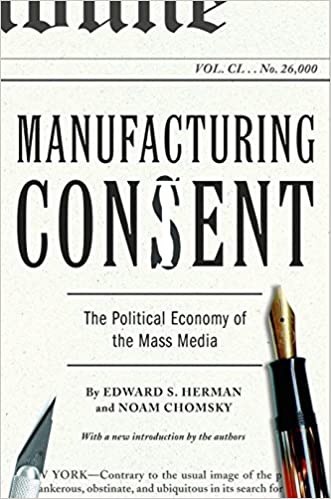
Manufacturing Consent
The Political Economy of the Mass Media
Noam Chomsky & Edward S. Herman
This book was a choc when it came out. It busted the myth that mass media are struggling out there in their search for truth and defense of justice. But contrary to conspiracy theories that imply media and power are working together, the authors point in another direction. They lay out their propaganda model based on five filters. If you don't have time to read the book, check my article "(Almost) Everything You Need to Know About Media".
Three notes from the book:
1- The mass media serve as a system for communicating messages and symbols to the general populace. It is their function to amuse, entertain, inform, and to inculcate individuals with the values, beliefs, and codes of behavior that will integrate them into the institutional structures of the larger society. In a world of concentrated wealth and major conflicts of class interest, to fulfil this role requires systematic propaganda.
2- The public is not sovereign over the media—the owners and managers, seeking ads, decide what to be offered, and the public must choose among these. People watch and read on the basis of what is readily and intensively promoted.
3- Advertisers will want, more generally, to avoid programs with serious complexities and disturbing controversies that interfere with the "buying mood".
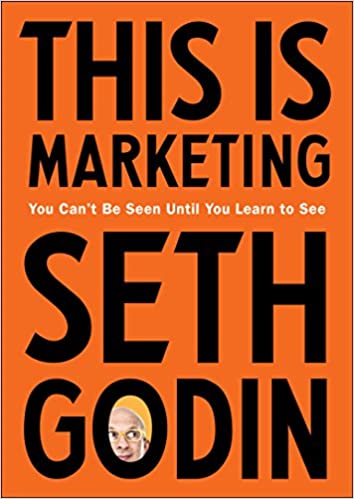
This Is Marketing
You Can't Be Seen Until You Learn to See
Seth Godin
I listened to more interventions of Seth Godin than I read his books. I like his way of thinking about how marketing should be. It's a more respectful approach to how we present our work (product or service) to the world. If you ever had a bad image of marketing (like I used to), you'll end up with a different opinion.
Three notes from the book:
1- Marketing is the generous act of helping someone solve a problem. Their problem.
2- For the independent creator of intellectual property (a singer, perhaps, or a writer), it turns out that a thousand true fans might be sufficient to live a better-than-decent life.
3- If you want to make change, begin by making culture. Begin by organizing a tightly knit group. Begin by getting people in sync. Culture beats strategy--so much that culture is strategy.
3-
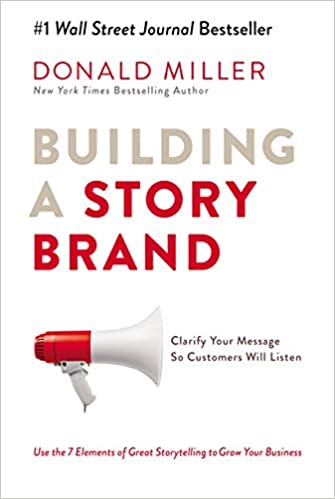
Building a Story Brand
Clarify Your Message So Customers Will Listen
Miller Donald
The one who tells the best stories win. Storytelling is an art by itself. This book gives a simple storytelling framework that is used in movies and businesses. Our ideas and products can be great, but without a great story to present them, they won't be attractive.
Three notes from the book:
1- Your customer should be the hero of the story, not your brand. This is the secret every phenomenally successful business understands.
2- How many sales are we missing out on because customers can't figure out what our offer is within five seconds of visiting our website?
3- in a story, audiences must always know who the hero is, what the hero wants, who the hero has to defeat to get what they want, what tragic event will happen if the hero doesn't win, and what wonderful thing will happen if they do.
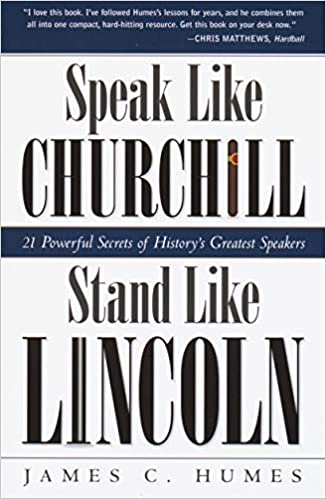
Speak Like Churchill, Stand Like Lincoln
21 Powerful Secrets of History's Greatest Speakers
James C. Humes
This book is filled with stories of great speakers and leaders. Each one of them had tools to make their speech impactful. Without them, they couldn't sell their ideas. Some of the tools are applicable to writing.
Three notes from the book:
1- Never, never, never let words come out of your mouth when your eyes are looking down.
2- Listening to long speech can seem like reading a book without punctuation>
3- The difference between so-so and superb speakers is often this: One begins banally, the other with a bang.
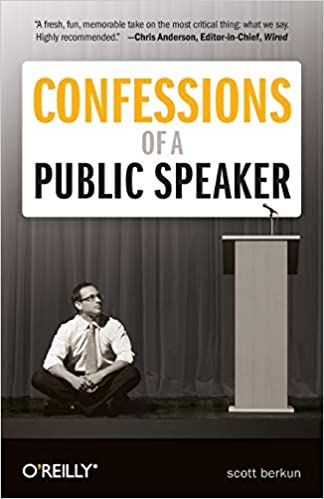
Confessions of a Public Speaker
Hilarious and highly practical bestseller
Scott Berkun
Public speaking was on the list of the things that freaks me out. Besides joining Toastmasters for practice, I bought some books to help me accelerate my learning. If you want to improve your performance, this book has practical tips and it's fun to read.
Three notes from the book:
1- If you want to be good at something, the first thing to go out of the window is the notion of perfection.
2- The body's reaction to fear and excitement is the same...so it becomes a mental decision: am I afraid or am I excited?
3- All good public speaking is based on good private thinking.
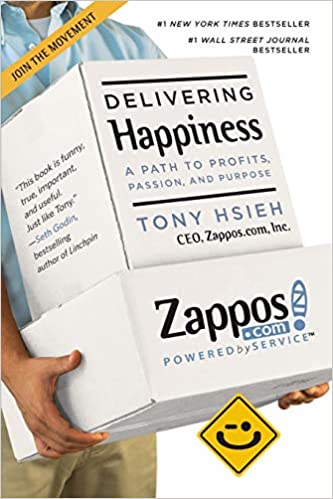
Delivering Happiness
A Path to Profits, Passion, and Purpose
Tony Hsieh
I bought this book when I was interested in companies' culture. Even though I never used Zappos (they don't operate in Canada), I found the story of their growth fascinating. Something I always believed: the companies that assist their employees in their growth and learning do greatly. The story of Zappos is the proof.
Three notes from the book:
1- Our philosophy has been to take most of the money we would have spent on paid advertising and invest it into customer service and the customer experience instead, letting our customers do the marketing for us through word of mouth.
2- What is the best way to build a brand for the long term? In a word: culture.
3- Without continually growing and learning both personally and professionally, it's unlikely that any individual employee will still be with the company ten years from now.










